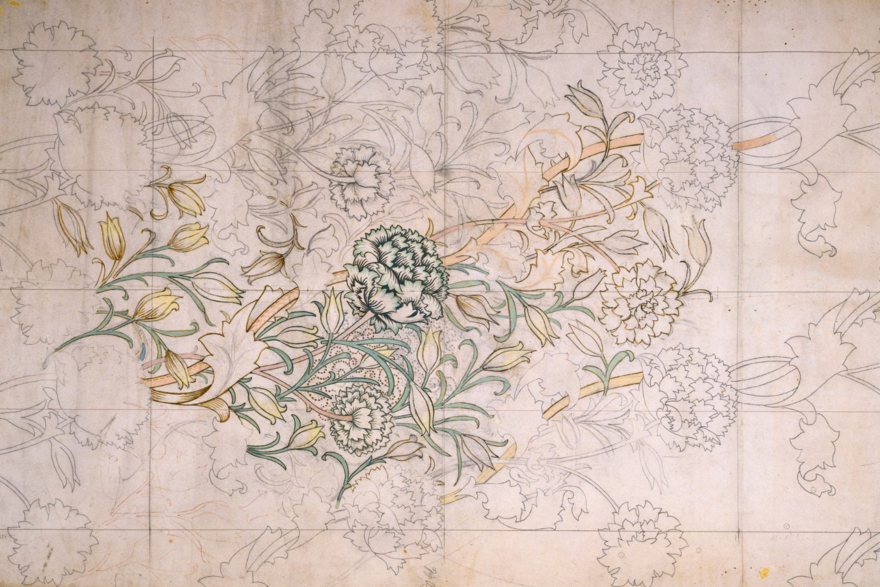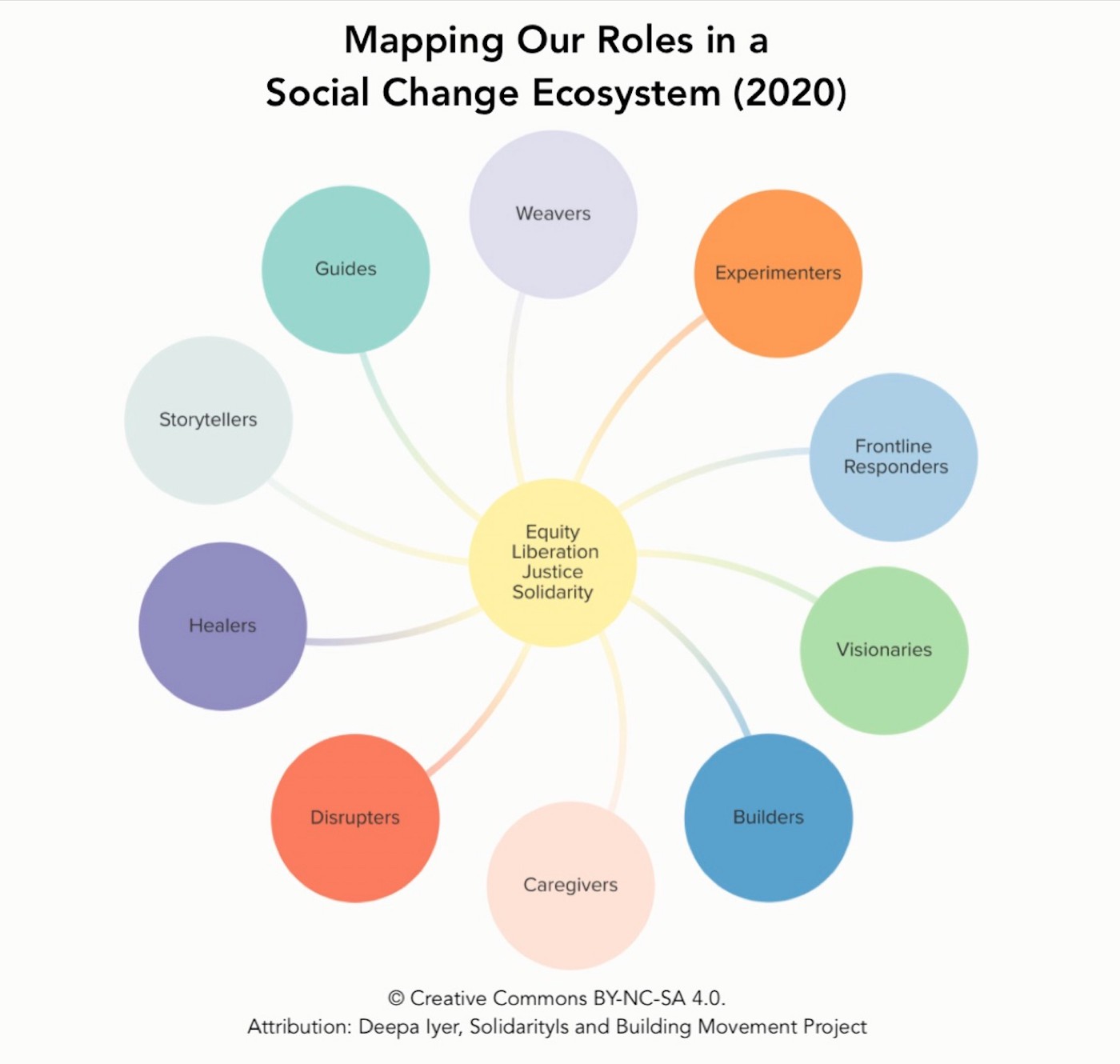Change is a practice, part 2

“History has opened a door for you. To go through it, you need two things: to know the world is not enough, and to do something about it.” — Carmen Maria Machado
This Mapping Our Roles in Social Change Ecosystems by Deepa Iyer graphic has been zinging around a lot lately:

I love it, and yet I struggled when I tried to put myself in one category. I’m a storyteller, a weaver, and a guide. And even then, my first question was, if I’m not a frontline responder or a disruptor, what can I do?
If you’re an introvert, the constant calls to action on Instagram can turn into noise pretty quickly. We are of no use when we are overwhelmed.
It helps to remember that transformation isn’t a quick fix. These are deep cultural wounds that we have, and cultural healing is a lifetime project. The quieter work that some of us do is important, even if it appears to be invisible.
Something I’m learning from Leesa Renee Hall is how important it is to develop an anti-racist practice that works for your personality, and build it into your lifestyle, so you don’t burn out. You can’t do everything at once; choose a few things, and do them with care and intention.
These are some anti-racist practices that I’m showing up for right now. Some of them might resonate for you, too:
-
unpacking my unconscious biases through writing reflection, in Leesa Renee Hall’s Inner Field Trip
-
following Nicole Cardoza’s Anti-Racism Daily action suggestions
-
checking in with a dedicated WhatsApp accountability group with two friends, so we can learn and practice together
-
reading daily news from Blavity and listening to my favourite news podcast It’s Been A Minute with Sam Sanders
-
doing a thorough audit and restructure at the school, making important changes to our website and Intensive for this fall (more on this later)
-
Reading NK Jemison’s The City We Became
-
signing petitions and donating to causes I support*
-
voting in the US election (this is so complicated for out of country voters in Indiana, it counts as a practice)
-
entering the flow state for an hour a day to metabolize the work I’m doing, integrate it, and write a story
I know my writing is important, because I’m no good when I’m not writing. Spending time in the flow state is not a way to escape: it’s a way to heal. It’s deep, embodied learning. So yes, I’m writing every day. But I also feel the need to do more than write.
*Because a proudly racist perpetrator of genocide in Canada is being glorified in front of my public library, and Chantel Moore and Breonna Taylor, innocent Indigenous and Black women, respectively, were murdered in their homes by police officers.
The discomfort I feel as a white Canadian/American is an obvious opportunity for me to grow. Looking at our unconscious biases in detail is hard, especially if we don’t do it regularly, and it makes us smarter and more compassionate. And it’s clear that doing more to elevate marginalized voices will only make us better writers.
I'm thrilled to announce that the wonderful Darrel J. McLeod, author of the Governor General's Literary Award winner Mamaskatch: A Cree Coming of Age, is going to be leading his own Story Intensive class this year. And, Journey Prize nominee Hajera Khaja is joining us as a TA for the first time. Both Darrel and Hajera are Intensive graduates and are deeply familiar with the program. I'm honoured to welcome their voices to this year's faculty.
I am waiting to confirm details on more exciting additions to the Intensive this fall. We are dedicated to making change, and we’re working on it every day.

Photo credit (top): @birminghammuseumstrust on Unsplash.

1 comment
Leave a comment